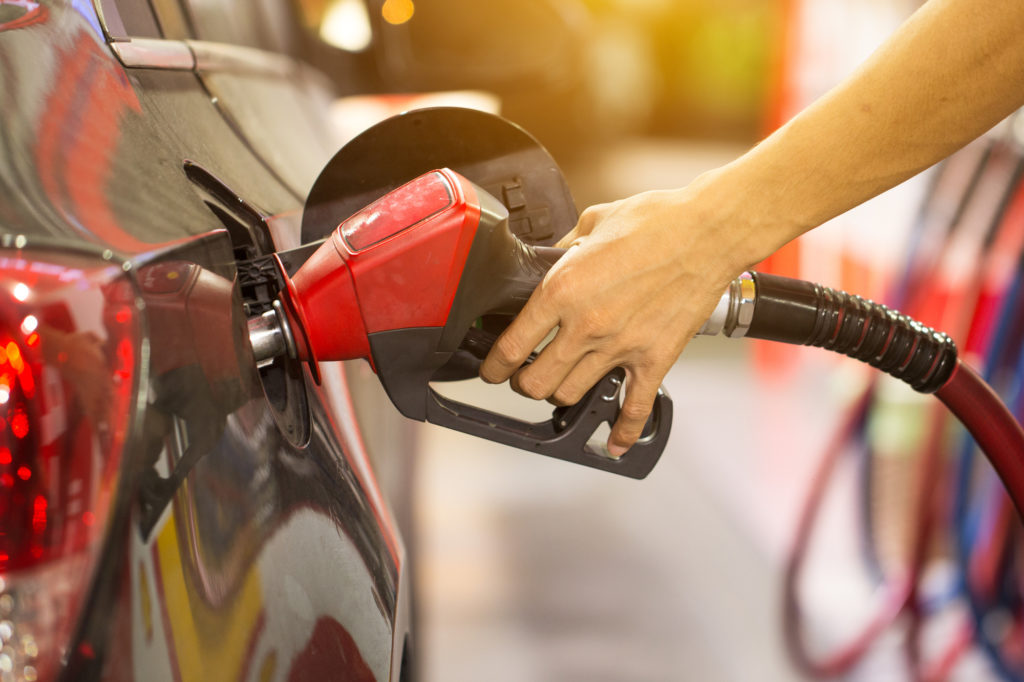
Diesel and gasoline make the world go round.
At least they make the wheels which power modern civilization go around anyways.
If you’re curious as to why you need to keep your car away from the green pump then you’re in the right place.
Read on and we’ll explain the difference between diesel and gas for you.
Don’t They Both Come From Oil?
Petrochemistry is both vast and complex. Crude oil is turned into a wide array of different chemicals through industrial-scale processes.
One of the most important of these is fractional distillation.
That’s how you end up with the different sections of oil which are used for different things.
Crude oil is comprised of tons of different hydrocarbons. Both gasoline and diesel end up being complicated mixtures of chemicals regardless of how often we think of them as “pure” chemicals.
The difference is in the temperature fraction which diesel and gasoline are extracted at. Gasoline is more volatile, and its fraction is extracted at a lower temperature than diesel.
Gasoline is a “lighter” fraction of oil than diesel, which results in a mixture which is less stable and turns into vapor more easily.
So What’s the Difference?
Engines are designed to run on one or the other. As a general rule, no engine is going to be able to run with both.
Because gasoline is much more volatile and has a lower temperature required to catch fire the compression ratios are much lower. It begins to form a gas as soon as it’s been sprayed in the cylinder which means that a spark plug can be used to ignite it and force the cylinder back down.
Diesel, on the other hand, doesn’t use spark plugs. Instead, the fuel is compressed tightly which raises the temperature to the point that it ignites. The engine employs a much higher compression ratio.
Gasoline is much easier to work with for the most part, since the engine doesn’t have to be as overbuilt as you’ll find diesel engines have to be.
The Functional Difference Between Diesel and Gas
Of course, most people are concerned with the difference when it comes to function rather than just the chemistry and engineering behind them.
The Advantages of Gasoline
For the most part, gasoline involves the following advantages over diesel:
Engines, which use gas, are lighter since they don’t need to stand up under as high of compression as you’ll find in diesel engines. This leads to a lower overall weight for the vehicle.
Gasoline engines are also much easier to start when you’re working in extremely cold weather. Diesel engines don’t use spark plugs, relying on the compression of the fuel to ignite. That’s great for temperate climes, but it’s not so great for getting the engine started when the weather is cold.
Diesel engines tend to smell worse. The emissions from diesel are actually cleaner overall but when it comes down to it gasoline releases more environmental problems. You just aren’t able to perceive them as easily.
Availability is one of the biggest advantages of gasoline. Every gas station has gasoline, but not all of them are going to carry diesel.
Finally, gasoline engines are cheaper, as are the parts which go into their construction. Diesel engines have to be built heavier due to the extreme pressure within the cylinder which leads to a higher upfront cost.
It’s pretty easy to see why gasoline is the predominant form of fossil fuel in most places.
Advantages of Diesel Fuels
That’s not to say things are all bad for diesel engines, however. They enjoy numerous advantages over their gasoline counterparts.
Diesel engines have better fuel economy than their gasoline counterparts. That’s one of the main reasons that it’s been the gold standard for long-haul logistics for such a long time.
Diesel engines also tend to have a longer running lifespan. They’re built heavier and have less part. That means the lifespan of a cheap diesel motor often tops out at about 500,000 miles and a good one can often run for up to 800,000 before it gives out.
Speaking of less parts, diesel engines have far fewer electrical lines than gasoline motors. The lack of spark plugs means there’s less that can go wrong and it reduces the maintenance needed to keep the vehicle on the road.
Diesel fuel is also cheaper to produce than gasoline. Unfortunately, this doesn’t always translate directly into savings at the pump.
Diesel is also a much safer fuel than gasoline. It has a higher temperature required to light it, and it’s less volatile. Most gasoline fires are actually started by the fumes released due to evaporation rather than ignition of the liquid itself.
It’s hard to call one better than the other. Each is well suited for particular applications.
The big differences in function lend diesel to be used quite often for large transportation vehicles, while the common availability and cheaper engines associated with gasoline make it the ideal for consumers.
Which is Best for Me?
That really depends on the application you’re going for.
Diesel engines in vehicles almost always cost more upfront. There’s also a big power differential between gasoline and diesel, diesel offers around 30% more power in the same size of engine with all other things being equal.
If you can afford the upfront hike in price and you’re on the road frequently then you may want to spring for a diesel engine in your next vehicle.
On the other hand, gasoline is much more available and the parts are cheaper so it’s kind of a mixed bag for consumer vehicles.
There’s one place where diesel shines for consumers: diesel fuel generators require less volume of fuel per watt of power.
That means two big things for a consumer:
- For a backup generator, you’ll be able to get more power out of your storage space.
- The generator will be smaller for the same amount of power provided as a gasoline model.
This makes them favored by a few different markets, particularly preppers. They also make good RV generators if you’re not using an onboard, although propane often dominates that particular market.
Basically, when it comes to vehicles you’ll want to carefully consider everything involved. For generators, diesel is the obvious option.
Curiosity Satisfied?
We hope that we’ve explained the difference between diesel and gas clearly enough for you.
Many people couldn’t tell you the difference other than noting that diesel is used in big trucks.
Satisfying that curious little itch in the back of your brain is a noble cause.
Why not pop on over to the technology section and see what else you can learn today?


One Comment
Leave a Reply